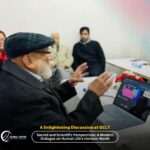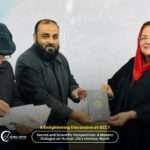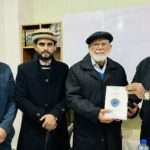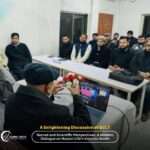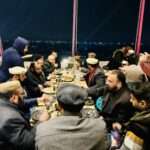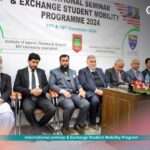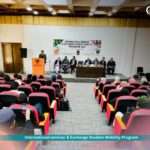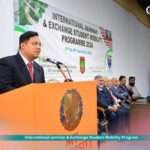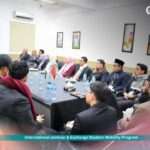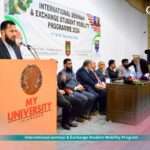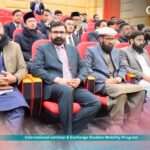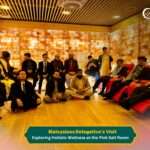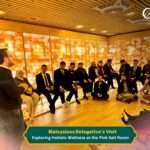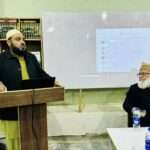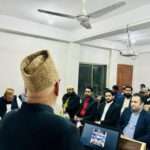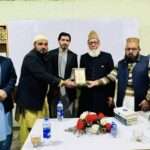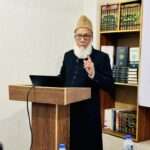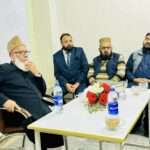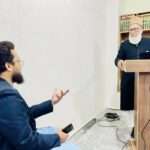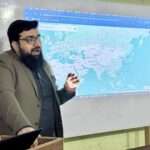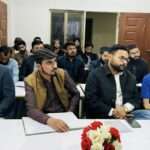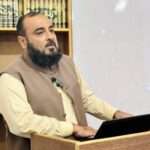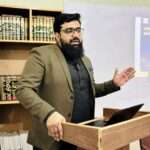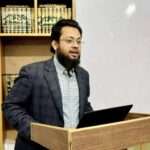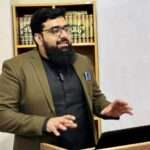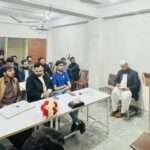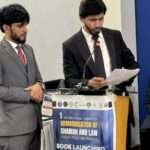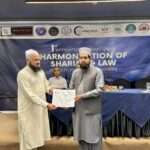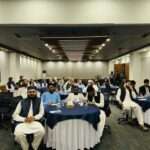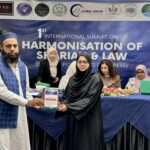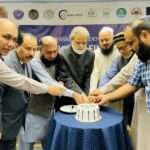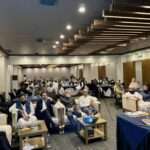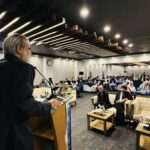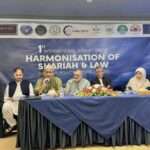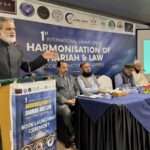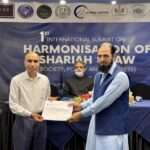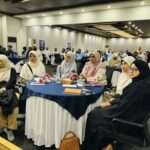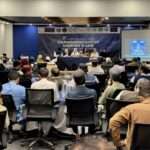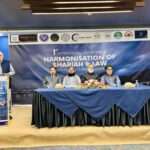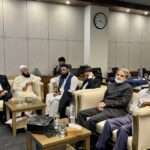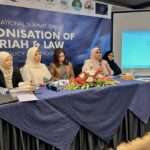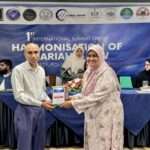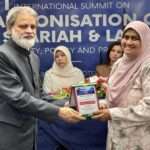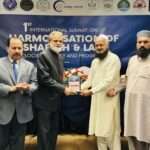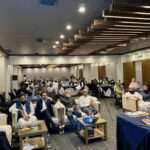Events
𝐀 𝐌𝐨𝐝𝐞𝐫𝐧 𝐃𝐢𝐚𝐥𝐨𝐠𝐮𝐞 𝐨𝐧 𝐇𝐮𝐦𝐚𝐧 𝐋𝐢𝐟𝐞’𝐬 𝐈𝐧𝐭𝐫𝐢𝐧𝐬𝐢𝐜 𝐖𝐨𝐫𝐭𝐡
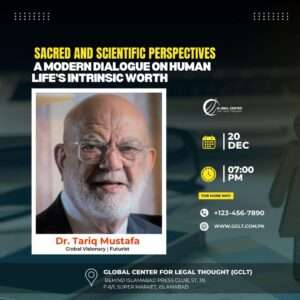
𝐈𝐍𝐓𝐄𝐑𝐍𝐀𝐓𝐈𝐎𝐍𝐀𝐋 𝐒𝐄𝐌𝐈𝐍𝐀𝐑 𝐀𝐍𝐃 𝐄𝐗𝐂𝐇𝐀𝐍𝐆𝐄 𝐒𝐓𝐔𝐃𝐄𝐍𝐓 𝐌𝐎𝐁𝐈𝐋𝐈𝐓𝐘 𝐏𝐑𝐎𝐆𝐑𝐀𝐌𝐌𝐄 𝟐𝟎𝟐𝟒 (𝐈𝐒𝐈𝐏𝐀𝐌 𝟐𝟎𝟐𝟒)
𝐈𝐒𝐈𝐏𝐀𝐌 𝟐𝟎𝟐𝟒, a prestigious collaboration between the 𝐀𝐜𝐚𝐝𝐞𝐦𝐲 𝐨𝐟 𝐈𝐬𝐥𝐚𝐦𝐢𝐜 𝐒𝐭𝐮𝐝𝐢𝐞𝐬, 𝐔𝐧𝐢𝐯𝐞𝐫𝐬𝐢𝐭𝐢 𝐌𝐚𝐥𝐚𝐲𝐚 (𝐔𝐌) and 𝐈𝐧𝐬𝐭𝐢𝐭𝐮𝐭𝐞 𝐨𝐟 𝐈𝐬𝐥𝐚𝐦𝐢𝐜 𝐒𝐭𝐮𝐝𝐢𝐞𝐬 𝐚𝐧𝐝 𝐒𝐡𝐚𝐫𝐢𝐚, 𝐌𝐮𝐬𝐥𝐢𝐦 𝐘𝐨𝐮𝐭𝐡 𝐔𝐧𝐢𝐯𝐞𝐫𝐬𝐢𝐭𝐲 (𝐌𝐘).
𝐆𝐂𝐋𝐓 proudly plays a 𝐩𝐢𝐯𝐨𝐭𝐚𝐥 𝐫𝐨𝐥𝐞 in facilitating this 𝐥𝐚𝐧𝐝𝐦𝐚𝐫𝐤 𝐞𝐯𝐞𝐧𝐭, fostering 𝐠𝐥𝐨𝐛𝐚𝐥 𝐚𝐜𝐚𝐝𝐞𝐦𝐢𝐜 𝐝𝐢𝐚𝐥𝐨𝐠𝐮𝐞 and strengthening 𝐭𝐢𝐞𝐬 𝐛𝐞𝐭𝐰𝐞𝐞𝐧 𝐫𝐞𝐧𝐨𝐰𝐧𝐞𝐝 𝐢𝐧𝐬𝐭𝐢𝐭𝐮𝐭𝐢𝐨𝐧𝐬.
🎓 𝐀 𝐖𝐚𝐫𝐦 𝐖𝐞𝐥𝐜𝐨𝐦𝐞 𝐭𝐨 𝐭𝐡𝐞 𝐄𝐬𝐭𝐞𝐞𝐦𝐞𝐝 𝐃𝐞𝐥𝐞𝐠𝐚𝐭𝐢𝐨𝐧 𝐨𝐟 𝐔𝐧𝐢𝐯𝐞𝐫𝐬𝐢𝐭𝐢 𝐌𝐚𝐥𝐚𝐲𝐚:
▪️ 𝐏𝐫𝐨𝐟𝐞𝐬𝐬𝐨𝐫 𝐃𝐫. 𝐌𝐨𝐡𝐝 𝐅𝐚𝐮𝐳𝐢 𝐁𝐢𝐧 𝐇𝐚𝐦𝐚𝐭 – Dean
▪️ 𝐀𝐬𝐬𝐨𝐜. 𝐏𝐫𝐨𝐟. 𝐃𝐫. 𝐊𝐡𝐚𝐝𝐡𝐞𝐫 𝐁𝐢𝐧 𝐀𝐡𝐦𝐚𝐝 – Deputy Dean (Student Affairs)
▪️ 𝐃𝐫. 𝐌𝐨𝐡𝐚𝐦𝐚𝐝 𝐀𝐳𝐫𝐢𝐞𝐧 𝐁𝐢𝐧 𝐌𝐨𝐡𝐚𝐦𝐞𝐝 𝐀𝐝𝐧𝐚𝐧 – Deputy Dean (Undergraduate Studies)
▪️ 𝐌𝐫𝐬. 𝐌𝐚𝐢𝐦𝐮𝐧𝐚𝐡 𝐁𝐢𝐧𝐭𝐢 𝐊𝐚𝐦𝐚𝐫𝐮𝐝𝐝𝐢𝐧 – Senior Assistant Registrar
▪️ 𝐌𝐫𝐬. 𝐍𝐮𝐫 𝐉𝐚𝐧𝐧𝐚𝐡 𝐁𝐢𝐧𝐭𝐢 𝐌𝐝 𝐀𝐤𝐡𝐢𝐫 – Project Officer
🌟 𝐇𝐨𝐬𝐭𝐞𝐝 𝐛𝐲 𝐌𝐮𝐬𝐥𝐢𝐦 𝐘𝐨𝐮𝐭𝐡 𝐔𝐧𝐢𝐯𝐞𝐫𝐬𝐢𝐭𝐲 (𝐌𝐘) and 𝐟𝐚𝐜𝐢𝐥𝐢𝐭𝐚𝐭𝐞𝐝 𝐛𝐲 𝐆𝐥𝐨𝐛𝐚𝐥 𝐂𝐞𝐧𝐭𝐞𝐫 𝐟𝐨𝐫 𝐋𝐞𝐠𝐚𝐥 𝐓𝐡𝐨𝐮𝐠𝐡𝐭 (𝐆𝐂𝐋𝐓), this initiative reflects our commitment to 𝐤𝐧𝐨𝐰𝐥𝐞𝐝𝐠𝐞 𝐞𝐱𝐜𝐡𝐚𝐧𝐠𝐞, 𝐚𝐜𝐚𝐝𝐞𝐦𝐢𝐜 𝐜𝐨𝐥𝐥𝐚𝐛𝐨𝐫𝐚𝐭𝐢𝐨𝐧, and 𝐬𝐭𝐮𝐝𝐞𝐧𝐭 𝐦𝐨𝐛𝐢𝐥𝐢𝐭𝐲.

📸 𝐒𝐭𝐚𝐲 𝐭𝐮𝐧𝐞𝐝 𝐟𝐨𝐫 𝐦𝐨𝐫𝐞 𝐡𝐢𝐠𝐡𝐥𝐢𝐠𝐡𝐭𝐬 𝐟𝐫𝐨𝐦 𝐭𝐡𝐢𝐬 𝐩𝐫𝐨𝐠𝐫𝐚𝐦!
#𝐈𝐒𝐈𝐏𝐀𝐌𝟐𝟎𝟐𝟒 #𝐔𝐧𝐢𝐯𝐞𝐫𝐬𝐢𝐭𝐢𝐌𝐚𝐥𝐚𝐲𝐚 #𝐌𝐘𝐔𝐧𝐢𝐯𝐞𝐫𝐬𝐢𝐭𝐲 #𝐆𝐂𝐋𝐓 #𝐀𝐜𝐚𝐝𝐞𝐦𝐢𝐜𝐄𝐱𝐜𝐡𝐚𝐧𝐠𝐞 #𝐒𝐭𝐮𝐝𝐞𝐧𝐭𝐌𝐨𝐛𝐢𝐥𝐢𝐭𝐲 #𝐊𝐧𝐨𝐰𝐥𝐞𝐝𝐠𝐞𝐒𝐡𝐚𝐫𝐢𝐧𝐠 #𝐆𝐥𝐨𝐛𝐚𝐥𝐂𝐨𝐥𝐥𝐚𝐛𝐨𝐫𝐚𝐭𝐢𝐨𝐧
𝐄𝐱𝐩𝐥𝐨𝐫𝐢𝐧𝐠 𝐇𝐨𝐥𝐢𝐬𝐭𝐢𝐜 𝐖𝐞𝐥𝐥𝐧𝐞𝐬𝐬 𝐚𝐭 𝐭𝐡𝐞 𝐏𝐢𝐧𝐤 𝐒𝐚𝐥𝐭 𝐑𝐨𝐨𝐦

𝐇𝐞𝐚𝐥𝐢𝐧𝐠 𝐭𝐡𝐞 𝐖𝐨𝐫𝐥𝐝: 𝐁𝐮𝐢𝐥𝐝𝐢𝐧𝐠 𝐁𝐫𝐢𝐝𝐠𝐞𝐬 𝐁𝐞𝐲𝐨𝐧𝐝 𝐁𝐨𝐫𝐝𝐞𝐫𝐬

𝐂𝐚𝐩𝐭𝐮𝐫𝐢𝐧𝐠 𝐌𝐨𝐦𝐞𝐧𝐭𝐬 𝐟𝐫𝐨𝐦 𝐚 𝐓𝐫𝐚𝐧𝐬𝐟𝐨𝐫𝐦𝐚𝐭𝐢𝐯𝐞 𝐄𝐯𝐞𝐧𝐢𝐧𝐠!
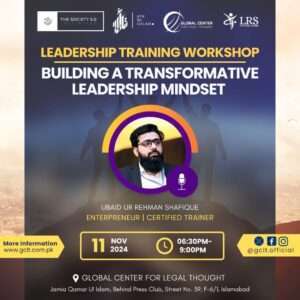
Global Summit on Harmonisation of Shari'ah and Law (GSHSL 2024)
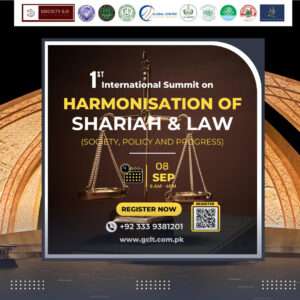
Climate Finance Through Islamic Principles
In the realm of environmental sustainability, the concept of “Climate Finance Through Islamic Principles” emerges as a compelling avenue for addressing global ecological challenges. This approach navigates the intersection of Islamic ethics and financial systems, aiming to forge solutions that align with the principles of Islam and Shariah. Grounded in the understanding that responsible stewardship of the Earth is a shared duty, this exploration seeks to uncover how Islamic finance can contribute to environmentally conscious practices and sustainable development. As we navigate the complexities of climate finance, this examination offers insights into how Islamic principles can guide financial strategies that are not only economically sound but also environmentally responsible.
How can Islamic principles be effectively integrated into climate finance mechanisms to foster environmentally sustainable practices while adhering to Shariah compliance?
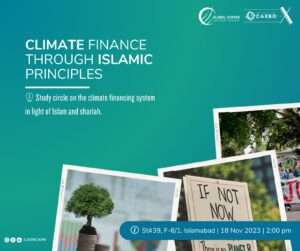
In what ways does climate finance through Islamic principles contribute to addressing pressing environmental challenges, and what specific financial instruments align with both ethical considerations and ecological sustainability?
What lessons can be drawn from the study circle discussions regarding the potential impact of Islamic climate finance on promoting global environmental awareness and sustainable development practices?
The study circle on "Climate Finance Through Islamic Principles" stands as a beacon illuminating the profound intersection of environmental responsibility and Islamic finance. Through thoughtful deliberations, it has not only unveiled potential strategies for aligning financial mechanisms with Shariah principles but also underscored the importance of incorporating ethical considerations in the pursuit of climate solutions. It serves as a catalyst for fostering a more harmonious relationship between finance and environmental stewardship, demonstrating the impactful role Islamic principles can play in shaping a sustainable and conscientious global financial landscape.
The Role and Responsibilities of Women in the Safeguarding of Religion (in the context of the Battle of Karbala)
In the profound historical context of the Battle of Karbala, the role and responsibilities of women in safeguarding religion emerge as a compelling and significant narrative. This pivotal event in Islamic history, marked by the tragic martyrdom of Imam Hussain, unfolds a unique perspective on the contributions of women in preserving the essence of faith. Beyond conventional roles, the women of Karbala exhibited unwavering strength, resilience, and a profound commitment to upholding the values inherent in their religious beliefs. Exploring the multifaceted responsibilities shouldered by these women provides valuable insights into the broader discourse surrounding the intertwining of gender, spirituality, and societal resilience within the fabric of religious history.
How did the women of Karbala shape and redefine traditional gender roles during the Battle, illustrating their pivotal role in safeguarding religious values?
What enduring lessons can be extracted from the experiences of these women, and how do these lessons resonate with contemporary discussions on women’s roles in religious preservation?
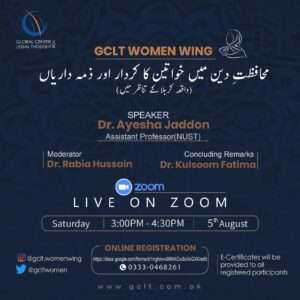
In what ways did the contributions of women in Karbala influence societal perceptions of gender roles, and how can these insights inform broader conversations on the intersection of faith and gender in diverse cultural contexts?
The symposium titled "The Role and Responsibilities of Women in the Safeguarding of Religion (in the context of the Battle of Karbala)" served as a profound exploration into the intricate dynamics of women's contributions during this historical event. It addressed key questions surrounding the transformative role of women, challenging and redefining traditional gender roles within the context of religious preservation. It provided a comprehensive understanding of the women of Karbala but also illuminated enduring lessons applicable to contemporary dialogues on gender, faith, and societal resilience.
From Exodus to Coexistence: Tracing the Historical Roots of Palestinian Politics & the Quest for a Two-State Solution
In the ongoing discourse surrounding the Israeli-Palestinian conflict, recent actions in the Gaza Strip and broader Israeli policies have become focal points, inviting a comprehensive exploration of their impact on the Palestinian people and their quest for a sovereign state. The humanitarian crisis unfolding in the region and the systemic challenges faced by Palestinians is one that needs immediate attention. The discourse also addresses the crucial role of the international community in mitigating these challenges and contributing to a resolution. Simultaneously, the discussion extends to an analysis of the potential of the international legal framework and global institutions in facilitating peace negotiations and safeguarding the rights and security of all involved parties. By situating the conversation within a global context, this framework underscores the importance of diplomatic and legal mechanisms in navigating the complexities of the conflict. Furthermore, the exploration of the historical context of Palestinian politics forms an integral part of the theoretical background, emphasizing the significance of historical awareness in shaping strategies for a peaceful resolution. This context underscores the need for a comprehensive approach that acknowledges past injustices, fostering a nuanced understanding that can pave the way for sustainable and just solutions in the pursuit of coexistence and peace.
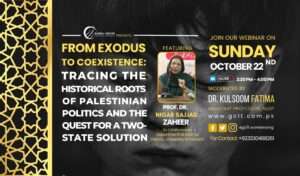
• What historical events have defined the Palestinian quest for nationhood and identity?
• How have recent actions in the Gaza strip and the broader Israeli policies affected the Palestinian people and their hopes for a sovereign state?
• In what ways can the international legal framework and global institutions contribute to resolving the conflict and supporting a two-state solution?
To answer these questions, the webinar titled "From Exodus to Coexistence: Tracing the Historical Roots of Palestinian Politics & the Quest for a Two-State Solution" recently offered a profound exploration of the historical and contemporary dynamics at play. The event provided a critical platform for examining the intertwined narratives of nationhood, identity, and the relentless pursuit of a peaceful resolution to the long-standing conflict, against the backdrop of a global push for a two-state solution and improved relations between Israel and the Arab world.
Envisioning the Future with Ethico-Philosophical Dimensions of Artificial Intelligence in Islamic Thought
In the contemporary intersection of technology and ethics, the incorporation of Islamic philosophical principles into discussions surrounding artificial intelligence (AI) has emerged as a critical and timely inquiry. The question of how ethical principles from Islamic philosophy can inform the development and utilization of AI technologies has opened avenues for nuanced explorations into justice, beneficence, and the sanctity of human life, as imparted by Islamic ethics. Participants engaging in these discussions have delved into the ways in which these principles can guide the ethical deployment of AI, emphasizing considerations of justice and human well-being throughout the technology’s lifecycle. Moreover, the dialogue extends to the pivotal question of ensuring harmony between AI technologies and Islamic ethical values, sparking conversations on embedding these values at every stage, from conception to deployment. The societal impacts of AI, viewed through an Islamic ethical lens, have prompted reflections on issues such as privacy, autonomy, and social equity, leading to a comprehensive exploration of potential mitigation strategies. As the discourse unfolds, the examination of how Islamic thought can contribute to the global discourse on AI ethics has underscored the potential of Islamic ethical principles to enrich and diversify conversations on the ethical implications of AI, advocating for a universally inclusive approach to ethical governance in technology.
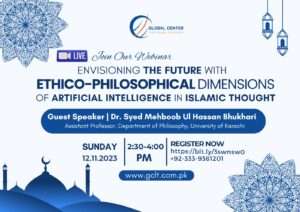
1.What ethical principles from Islamic philosophy can inform the development and utilization of artificial intelligence?
2.How can the development and application of AI technologies ensure harmony with Islamic ethical values?
3.What are the societal impacts of AI from an Islamic ethical viewpoint, and how can these be mitigated?
In providing answers to these questions, the webinar titled "Envisioning the Future with Ethico-Philosophical Dimensions of Artificial Intelligence in Islamic Thought" emerged as a critical juncture in the discourse on technology's moral compass, attracting a diverse audience eager to explore the integration of AI with the profound ethical teachings of Islamic philosophy. It underscored the indispensable role of Islamic ethical wisdom in shaping a tech-driven future that upholds humanity's highest moral standards. The event stands as a testament to the urgent need for a harmonious coexistence between technological advancement and ethical stewardship, guided by the rich traditions of Islamic thought.
Discovering New Horizons: Lessons from Madrassa to University Experience
On May 6th, 2023, the Global Center for Legal Thought (GCLT) hosted an extraordinary evening that left attendees inspired and enlightened. The event, entitled “Discovering New Horizons: Lessons from Madrassa to University Experience,” featured Dr. Falak Sher Faizi, Assistant Professor at Lahore Leads University, who shared his personal journey of growth and the transformative power of education.
Dr. Faizi effortlessly captivated the audience with his unique perspective on the transition from Madrassa to university. Drawing upon his own experiences, he delved into profound insights and invaluable lessons, illuminating how education can shape an individual’s life and pave the way for new opportunities.
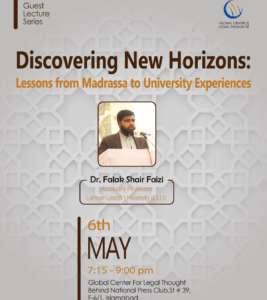
The event drew a diverse audience, including students, educators, and individuals with a passion for lifelong learning. Attendees were treated to an engaging discourse on navigating different educational phases and optimizing their academic journey. Dr. Faizi's words resonated deeply with the audience, providing them with guidance and motivation to strive for excellence in their educational pursuits.
The lecture proved to be an enriching experience for all who attended, as they left the event feeling inspired and equipped with practical strategies for personal growth. Dr. Faizi's expertise and storytelling prowess ensured that each participant gained a profound understanding of the transformative potential of education.
On behalf of the Global Center for Islamic Finance (GCLT), Dr. Abu Bakar Siddique expressed heartfelt gratitude to Dr. Falak Sher Faizi for generously sharing his time, knowledge, and experiences with us. His contribution served as a testament to GCLT's unwavering commitment to fostering a culture of continuous learning and personal development.
Intersection of Culture, Religion, and Women's Spirituality
On April 11, 2023, the Global Center for Legal Thought (GCLT) organized an engaging panel discussion under the title “Empowering Women in Ramadan: Exploring the Intersection of Culture, Religion, and Women’s Spirituality.” This enlightening event took place at Kitchen Cuisine in F-8/1, Islamabad, drawing a diverse audience eager to delve into the multifaceted roles of women during the holy month of Ramadan.
The discussion was skillfully moderated by Dr. Kulsoom, an Assistant Professor at the National University of Science and Technology (NUST), who expertly guided the conversation towards a deeper understanding of the topic.
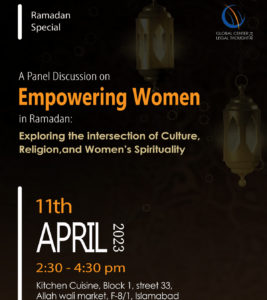
The panel comprised two distinguished speakers from NUST, who offered valuable insights and perspectives. Dr. Ayesha Jadoon, an Assistant Professor at NUST, shed light on the often overlooked impact of women's narratives in uncovering the true essence of Ramadan and the diverse experiences within the Muslim community. Dr. Wajiha Haq, also an Assistant Professor at NUST, shared inspiring stories of women who have shattered stereotypes and assumed leadership roles in Islamic communities. Her focus was on their transformative journeys from fasting to taking on prominent positions of leadership.
The primary objective of the panel discussion was to explore the intricate interplay between culture, religion, and spirituality, and their influence on the experiences of women during the sacred month of Ramadan. Attendees had the opportunity to glean valuable knowledge from esteemed experts in the field and engage in discussions centered around strategies for empowering women to fully participate in the spiritual and communal aspects of Ramadan.
Navigating the Intersection of Maqasid e Shariah and Islamic Banking
Islamic banking holds significant global importance due to its unwavering commitment to Shariah principles. Yet, the practical implementation of these principles presents a labyrinth of challenges. In a quest to navigate these complexities and unlock the potential for aligning banking practices with the broader objectives of Shariah, the Global Center for Islamic Finance (GCLT) organized a thought-provoking session on February 16, 2023.
Stepping into the spotlight as the distinguished keynote speaker was none other than Dr. Muhammad Tahir Mansoori. With an illustrious background as a former Vice President (HSR) at IIUI and a Resident Shariah Advisor Board Member at SECP, Dr. Mansoori graced the event with his invaluable expertise, unfurling insights and perspectives that set minds ablaze.
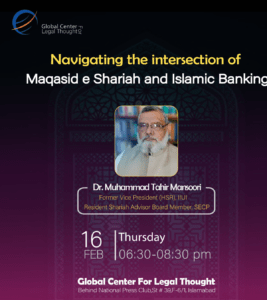
At the heart of the session lay the captivating concept of Maqasid e Shariah and its profound significance in the realm of Islamic banking. The atmosphere crackled with intellectual fervor as participants delved into thoughtful discussions, ardently exploring the contours of effective strategies for seamlessly integrating these principles into the tapestry of banking practices. The event's primary mission? To build sturdy bridges that spanned the chasm between theoretical concepts and their gritty, real-world implementation, endowing attendees with a newfound depth of understanding regarding the challenges and prospects that lay within this domain's intricate tapestry.
As the clock ticked away, the session reverberated with energy, kindling a vibrant response from a diverse and engaged audience. Scholars, banking virtuosos, students, and the curious minds who yearned for an intricate interplay between Shariah principles and the realm of finance all found solace within the event's resplendent discourse.
On behalf of the Global Center for Islamic Finance (GCLT), Dr. Abu Bakar Siddique extended heartfelt gratitude to Dr. Muhammad Tahir Mansoori, whose incandescent contribution to the event will forever be etched in the annals of this remarkable gathering. Moreover, the reverberating appreciation extends to every soul who graced the occasion with their active participation, for they, in essence, forged a platform for conversations of immense consequence. Through this session, the seeds of comprehension sprouted, unfurling a comprehensive tapestry of knowledge that unraveled the intricacies entwined with Islamic banking and the ethereal framework of Maqasid e Shariah.
Prohibition of Riba: A Legal Journey in Pakistan
On Thursday, November 10th, 2022, the Global Center for Legal Thought (GCLT) hosted a thought-provoking seminar titled “Prohibition of Riba: A Legal Journey in Pakistan.”
This event was held at GCLT’s premises in Islamabad and featured Mr. Qaisar Imam, an esteemed Advocate at Islamabad High Court, as the guest speaker. With his profound expertise in the legal domain, Mr. Imam provided valuable insights and shed light on the legal journey of prohibiting Riba (interest) in Pakistan. His extensive knowledge and experiences added depth to the discussions, making it a truly enriching experience for the attendees.
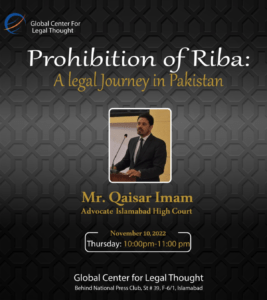
The primary aim of the seminar was to explore the legal aspects surrounding the prohibition of Riba in the Pakistani context. Riba holds significant importance within Islamic finance, and this seminar offered attendees a deeper understanding of its legal implications and its impact on financial transactions in Pakistan.
The participants had the opportunity to engage in meaningful discussions, ask questions, and exchange ideas with Mr. Qaisar Imam and fellow attendees who shared a common interest in the subject matter. The seminar provided a platform for legal professionals, scholars, and enthusiasts to come together and explore the complexities and nuances of the Prohibition of Riba in Pakistan.
The seminar ended with a Q&A session, where attendees had the opportunity to ask questions and share their perspectives on the topic. The discussion was lively and informative, and it provided a platform for legal professionals, scholars, and enthusiasts to come together and explore the complexities and nuances of the Prohibition of Riba in Pakistan.



